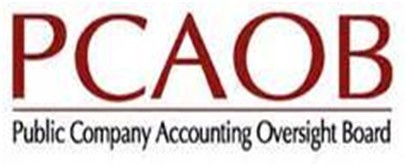The Public Company Accounting Oversight Board (PCAOB)
USINFO | 2013-11-14 15:57

The Public Company Accounting Oversight Board (PCAOB) is a private-sector, non-profit corporation created by the Sarbanes–Oxley Act, a 2002 United States federal law, to oversee the auditors of public companies. Its stated purpose is to "protect the interests of investors and further the public interest in the preparation of informative, fair, and independent audit reports". Although a private entity, the PCAOB has many government-like regulatory functions, making it in some ways similar to the private "self-regulatory organizations" (SROs) which regulate stock markets, broker-dealers, etc. in the United States. In conversation, the PCAOB is often pronounced "peekaboo".[1]
The PCAOB has five members, including a chairman, each of whom is appointed by the U.S. Securities and Exchange Commission (SEC). Precisely two members of the PCAOB must be or have been a Certified Public Accountant. However, if the chairman of the PCAOB is one of those two members, he or she may not have been a practicing certified public accountant for at least five years prior to being appointed to the Board. Each member serves full-time, for staggered five-year terms. As of 2009, the salary of the PCAOB's chairman is $672,676 per year, while the salaries of other board members are $546,891 annually.[2] The Board's annual budget of approximately $180 million,[3] which must be approved by the SEC each year, is funded by fees paid by U.S. securities issuers. The organization has a staff of over 600, and its headquarters is in Washington, D.C.
The PCAOB's first chairman was the former New York Federal Reserve president, William J. McDonough. The Board's immediate past Chairman is Mark W. Olson, a former Federal Reserve Board governor. The PCAOB's current Chairman is James R. Doty.
Share this page